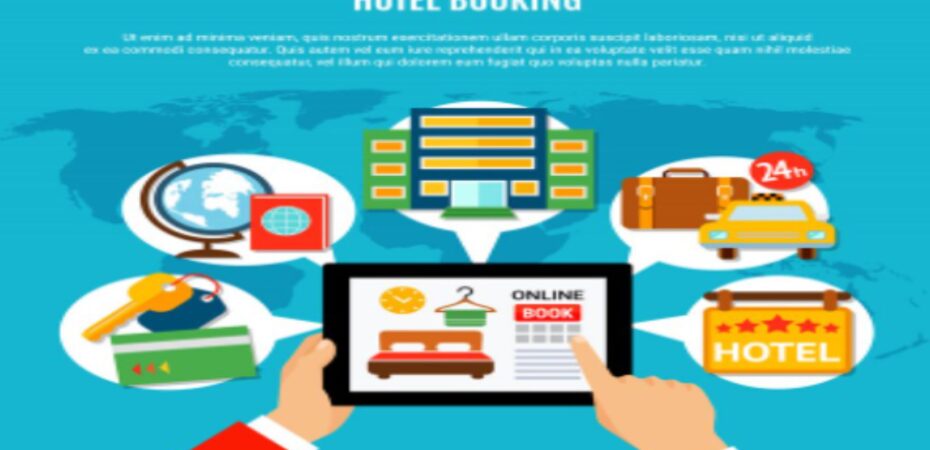The hotel industry is rapidly evolving, so the need for hotels to adapt and integrate technology into their operations is supercritical.
The utilization of technology and the growth of the hotel industry go hand in hand. According to a recent research published in researchandmarket.com claims the projection that the global hotel and travel accommodation industry is expected to grow at a compound annual growth rate (CAGR) of 7% by 2025.
In addition to that, the Duetto Survey done from January 14 – February 11, 2022, concluded that 78% of hotels expect their technology investment to increase in the next three years, which signals a significant shift towards digital transformation to meet the changing demands of guests and stay competitive in the market.
So, if you’re not yet on the same page with those 78% of hoteliers. Read further to discover why you should be doing the same.
Why Adapting Hotel Technology is Important for Hoteliers
Don’t ignore leveraging technology by considering it just a trend; it can bring a fundamental shift in how hoteliers operate, engage with their customers, and scale their business over time.
We have listed a few reasons WHY:-
Enhanced Guest Experience
Fusing technology into the hotel industry significantly elevates the guest experience by introducing conveniences such as mobile check-in and check-out, which eliminates the need for traditional front-desk processes.
This innovation leads to modernization that not only streamlines the arrival and departure experience but also caters to the modern traveler’s desire for efficiency and immediacy.
Furthermore, personalized services facilitated through guest messaging apps allow hotels to tailor their communication and offerings to individual preferences to enhance the guest’s stay.
Such personalized interactions not only heighten guest satisfaction but also foster a sense of loyalty and encourage repeat business, as guests are more likely to return to a hotel that remembers their preferences and makes them feel valued.
Improve Operational Efficiency
Hotel Technology allows the automation of routine tasks that minimize manual errors that often lead to guest dissatisfaction and operational hiccups.
This automation ranges from room assignments and billing processes to energy management systems that adjust conditions based on occupancy.
Freed from these time-consuming tasks, hotel staff can redirect their focus towards enhancing guest interactions and providing services that add significant value to the guest experience.
This shift not only improves the quality of service but also contributes to a more motivated and engaged workforce, as employees can concentrate on more rewarding aspects of their roles.
Gives Competitive Edge
Artificial Intelligence (AI) plays a crucial role in enabling personalized marketing strategies, where algorithms analyze guest data to deliver targeted promotions and recommendations.
This level of personalization makes marketing efforts more effective and can significantly increase guest engagement and conversion rates.
Additionally, digital upselling techniques—prompting guests with personalized offers for room
upgrades or additional services—can significantly boost revenue while enhancing the guest’s stay.

Guest messaging platforms further differentiate a hotel by offering real-time communication channels that allow guests to make requests, receive information, and interact with hotel services conveniently through their smartphones.
These technological advancements not only improve the guest experience but also position a hotel as a forward-thinking and guest-centric establishment that attracts more guests and opens up new revenue streams.
Data-Driven Decisions
The hotel industry is super competitive. Surviving in this industry is only possible by making decisions with data.
Hundreds of hotels in a particular location are fighting to get guests through their online ads and on OTAs by offering the best rates, discount coupons, and more.
To make informed decisions, hotels analyze vast amounts of data to inform strategies across pricing, marketing, and operations.
To get this data, they utilize Hotel API, which allows hoteliers to access real-time pricing data from various OTAs. With this data, hotels can adjust their rates dynamically in response to market demand, competitor pricing, and occupancy levels. For the efficient analysis that ensures optimal results, hotels usually hire data analysts.
Beyond pricing, data analysts can also identify guest preferences and behavior trends for guiding targeted marketing campaigns and operational adjustments for enhancing guest satisfaction and operational efficiency.
Sustainability
Digital technologies are pivotal in driving sustainability within the hotel industry. By transitioning to digital check-ins, menus, and room service orders, hotels significantly reduce their reliance on paper.
Energy management systems are another technological boon that automates the control of lighting, heating, and cooling based on occupancy, thereby reducing energy consumption.
These practices not only lower operational costs but also resonate with eco-conscious travelers, who increasingly prefer businesses that demonstrate environmental responsibility.
Implementing sustainable technologies positions hotels as environmentally friendly choices that attract a growing segment of the market and contribute to the global effort against climate change.
Potential Downfall of Not Investing in Innovative Technology
The refusal to invest in innovative technology can lead to several downfalls for hotels.
Primarily, it can result in a significant loss of competitive edge as guests increasingly expect seamless, tech-driven experiences.
Hotels that fail to offer these experiences may see a decline in guest satisfaction and loyalty, which will lead to lower occupancy rates and revenue.
Additionally, operational inefficiencies can increase with higher costs and lower staff productivity.
In the long run, the lack of investment in technology can render a hotel obsolete in the eyes of tech-savvy travelers, which leads to a challenging recovery path.
Conclusion
The integration of technology in the hotel industry is not just a passing trend but a critical component for growth, efficiency, and guest satisfaction.
As the industry evolves, hoteliers must recognize the importance of adapting to technological advancements to remain competitive and meet the changing expectations of guests.

Investing in technology such as hotel price APIs, digital check-in/out, guest messaging, and sustainable practices is essential for driving growth to enhance guest experiences and ensure the long-term success of hotels.
The future of the hotel industry lies in embracing technology, and the time to act is now.


 By
By 



